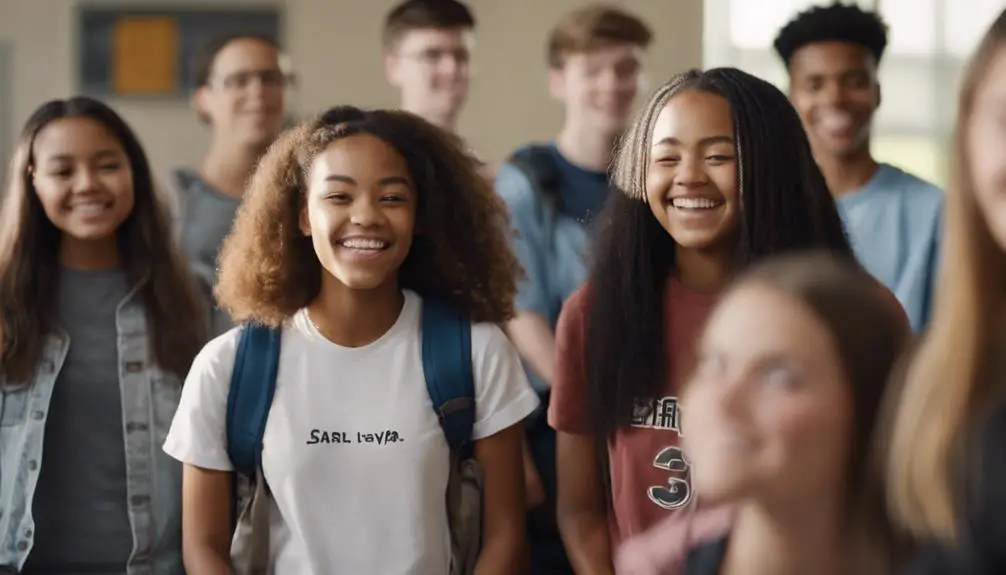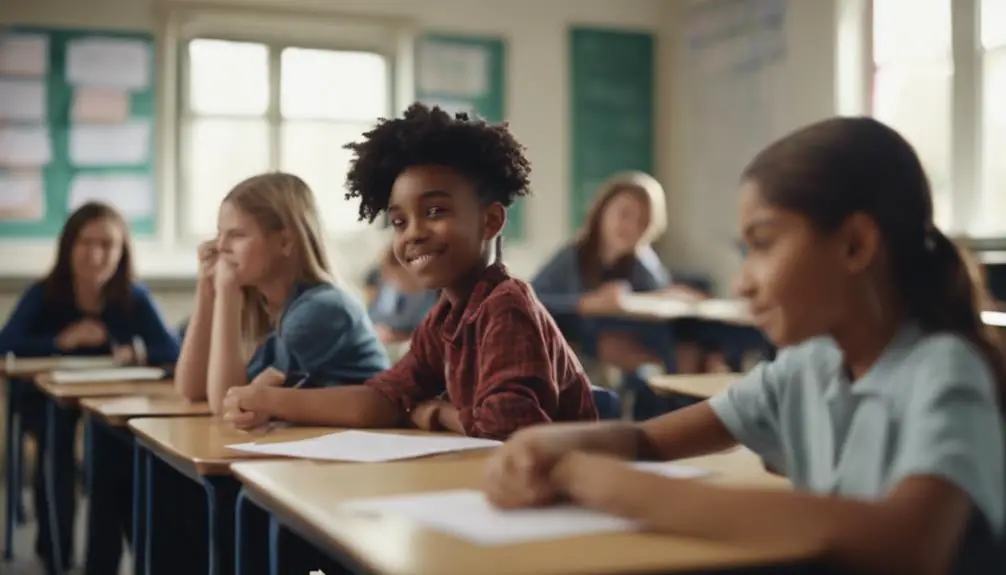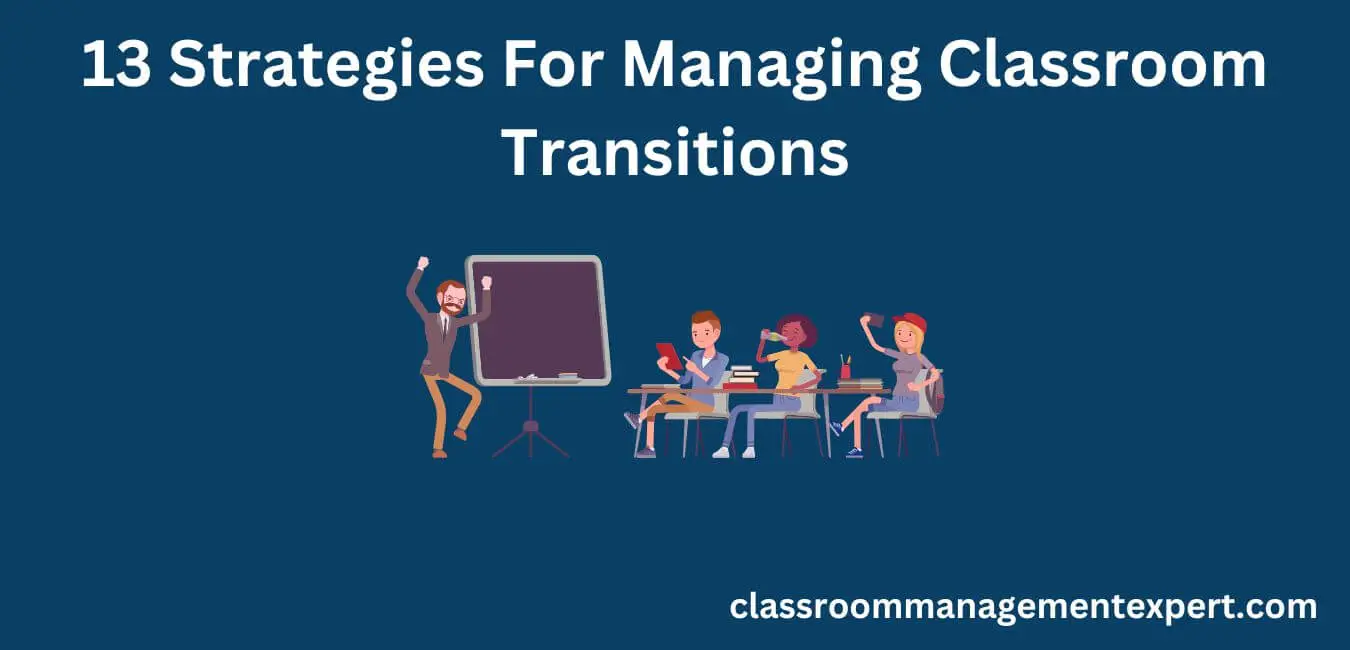When nurturing confidence in reserved students, it’s crucial to explore different strategies tailored to their individual needs and comfort levels. Confidence-building is not a one-size-fits-all task; it requires a personalized approach considering each student’s strengths and areas for improvement.
Through implementing a mix of supportive techniques and fostering a culture of encouragement, we can gradually guide shy students toward uncovering their potential and embracing new opportunities for self-discovery and growth.
How do you build confidence in shy students?

To help shy students gain confidence, it’s essential to actively engage them in class discussions, offer positive reinforcement, and establish a supportive environment where they feel at ease expressing themselves.
Providing individualized assistance and taking the time to build a trusting relationship with each student can greatly boost their self-assurance and encourage them to step out of their comfort zones.
Through these approaches, shy students can gradually overcome their inhibitions and realize their true potential.
Let’s take a closer look at how these strategies can make a positive impact on shy students’ growth and development.
Encouraging Participation in Class
Encouraging reserved students to join class discussions can be accomplished by establishing a supportive and inclusive learning atmosphere. Incorporating interactive activities, group projects, role-playing exercises, icebreakers, and collaborative learning opportunities can help build confidence and a sense of belonging for shy individuals.
Engaging in interactive exercises such as small group discussions or hands-on tasks provides a less daunting setting for shy students to share their thoughts. Working on group projects enables them to collaborate with peers, fostering teamwork and a shared sense of accomplishment. Role-playing scenarios can also boost their self-assurance and communication skills by allowing them to take on different roles.
Icebreaker activities help break down initial barriers, making it easier for reserved students to interact with their classmates. Collaborative learning environments establish a community where every voice is valued, encouraging even the most hesitant students to participate.
Providing Positive Feedback
In my experience, giving positive feedback can greatly boost the confidence of shy students. It involves providing personalized encouragement, promoting a growth mindset, and offering targeted praise to create a supportive environment. These strategies play a vital role in building self-assurance and uplifting students.
Let’s break down how these approaches work:
When we offer personalized encouragement, we establish a strong personal connection with students. This connection can help shy students feel valued and supported, leading to increased confidence in their abilities.
By fostering a growth mindset, we encourage resilience and effort. This mindset teaches students to view challenges as opportunities for growth, helping them overcome their shyness and embrace new experiences.
Using targeted praise is another effective way to boost confidence. By recognizing specific achievements, we show students that their efforts are noticed and appreciated. This recognition can instill a sense of accomplishment and motivate them to continue improving.
Confidence boosters reinforce self-belief by highlighting students’ strengths and potential. By acknowledging their positive traits, we help shy students see their worth and capabilities more clearly.
Lastly, uplifting affirmations play a crucial role in promoting positivity and self-worth. By offering encouraging words and affirmations, we can help shy students develop a more positive self-image and outlook on their abilities.
Creating a Safe Environment
To help reserved students build confidence, it’s crucial to foster a safe and supportive environment where they feel valued and respected. Prioritizing their emotional well-being is key, as it sets the foundation for trust and meaningful connections.
Creating a warm and inviting atmosphere in the classroom through friendly interactions can go a long way in making students feel comfortable. By providing a space where they can freely express themselves without fear of judgment, we can nurture their confidence.
Establishing clear expectations for respectful communication and behavior is essential in creating a safe environment. Modeling empathy and understanding shows reserved students that their thoughts and feelings matter.
Encouraging collaboration and group activities can also help them gradually boost their confidence in a supportive setting. By consistently demonstrating care and support, we empower reserved students to step out of their comfort zones and embrace new challenges with confidence.
Offering One-On-One Support
To assist shy students in boosting their confidence, offering personalized one-on-one guidance is a highly effective approach that can have a profound impact on their self-esteem and personal growth. Providing tailored coaching, individualized attention, customized support, and private mentoring can establish a secure environment where shy students can assess their strengths and challenges without feeling overwhelmed.
When delivering one-on-one support, it’s essential to actively listen and show empathy to grasp the specific needs and worries of each shy student. By tailoring guidance to suit their distinct personalities and learning preferences, you can aid them in gradually stepping outside their comfort zones and cultivating a sense of self-assurance.
Through private mentoring sessions, shy students can feel more at ease expressing their thoughts and emotions, leading to enhanced self-confidence and better communication abilities. This personalized approach enables concentrated focus on areas that necessitate improvement, fostering a sense of achievement and empowerment in shy students as they progress toward building confidence.
Building Trust and Rapport
Establishing genuine connections and consistently offering support is key to earning the trust of shy students, laying the groundwork for boosting their confidence.
Trust-building activities are essential in creating a safe and friendly space where students feel at ease expressing themselves. Icebreaker exercises serve as valuable tools for breaking down barriers and encouraging interaction among students, helping shy individuals ease into social settings and forge connections with their peers.
Effective relationship-building strategies involve active listening, empathy, and catering to individual needs. By demonstrating a genuine interest in their well-being and progress, strong connections can be established with shy students. Techniques that focus on building confidence, such as positive reinforcement, encouragement, and providing opportunities for success, are crucial in enhancing self-esteem and fostering belief in their capabilities.
Rapport-building methods concentrate on cultivating a supportive and inclusive environment where students are valued and respected. By nurturing a sense of belonging and acceptance, shy students can gradually overcome their inhibitions and develop the confidence necessary for personal growth and success.
Setting Achievable Goals
Setting achievable goals is a key strategy to boost the confidence of reserved students. Goal setting offers a clear path for personal growth and self-esteem. Breaking down big objectives into smaller, reachable milestones makes it easier to track progress and stay motivated.
Building confidence and motivation are crucial in fostering a success-oriented mindset in reserved students. Encouraging self-improvement through setting practical goals not only enhances confidence but also promotes overall well-being.
As an educator committed to supporting reserved students, I’ve found that setting attainable goals is a powerful tool in their development. By creating a roadmap with clear goals, students can see their progress and celebrate small wins, boosting their confidence and fueling their motivation to keep growing.
Through goal setting, reserved students learn to trust in their abilities, leading to greater self-esteem and a positive outlook on their personal development journey.
Celebrating Small Successes
Celebrating the small victories of shy students is a powerful way to boost their confidence and self-esteem. Recognizing their progress, no matter how incremental, can have a meaningful impact on their growth.
Whether it’s engaging in class discussions, presenting a project, or simply speaking up in a group setting, each step forward deserves to be acknowledged and celebrated.
These moments of recognition not only validate the efforts of shy students but also motivate them to continue pushing beyond their comfort zones. By focusing on their achievements, we communicate that their actions are significant and that they’re capable of success. This positive reinforcement can empower shy students to tackle new challenges with increased confidence.
As educators, it’s essential to highlight and celebrate these milestones to nurture the self-belief and courage of our shy students. By doing so, we create a supportive environment that encourages them to embrace new opportunities and continue their journey of personal growth.
Practicing Active Listening
Engaging actively with reserved students is crucial to boosting their confidence and creating a supportive learning environment. When we listen attentively to shy students, we demonstrate that their thoughts and emotions matter, fostering a space where they can open up.
Tailoring speaking exercises and group discussions to help shy students articulate their ideas is a great way to build their communication skills. Role-playing activities offer a low-pressure way for students to practice social interactions and enhance their communication abilities.
Peer interactions play a vital role in building confidence. Encouraging peer support in the classroom can make shy students feel more at ease and accepted. Providing opportunities for public speaking, such as presenting to a small group, can help shy students gain confidence as they gradually step out of their comfort zones.
Fostering Peer Relationships
Helping reserved students build confidence involves nurturing positive relationships with their peers to create a supportive classroom environment. Engaging reserved students in group activities not only fosters peer support but also helps them develop teamwork and social skills.
Through cooperation and friendship-building exercises, reserved students can gradually step out of their comfort zones and form meaningful connections with their classmates. Encouraging communication skills and trust-building activities can further enhance their ability to interact confidently with others.
Networking opportunities within the classroom are essential for fostering a sense of community among reserved students. By providing platforms for students to interact and connect with one another, educators can help reserved students feel more included and valued within their peer group.
Emphasizing the importance of peer support and creating safe spaces for students to express themselves can significantly boost the confidence of reserved students.
Embracing Individual Strengths
To support shy students in building their confidence, it’s essential to acknowledge and appreciate their unique strengths within the classroom environment. Adopting a strength-based approach can have a profound impact on a student’s self-esteem and overall development.
By focusing on what students excel at and offering specific praise and feedback, educators can help shy students discover their hidden talents. This personalized encouragement creates a nurturing atmosphere where shy students feel valued and empowered to step out of their comfort zones.
It’s through recognizing and nurturing individual strengths that we can truly foster growth and self-assurance in all students.
Using Affirmations Daily
Incorporating daily affirmations into the routine of shy students can significantly boost their confidence levels and self-belief. Positive affirmations serve as powerful tools to cultivate a growth mindset and foster self-confidence. Shy students can gradually shift their internal dialogue towards more empowering thoughts by engaging in a daily practice of affirmations.
Encouraging phrases such as ‘I am capable,’ ‘I possess unique strengths,’ and ‘I believe in myself’ can make a substantial difference in how shy students perceive themselves and their abilities. Consistency plays a crucial role in utilizing affirmations effectively. By incorporating these positive statements into their daily rituals, shy students can begin rewiring their brains to focus on their strengths and potential.
This consistent practice not only enhances self-confidence but also aids in developing a more optimistic outlook on life. Through the repetition of affirmations, shy students can slowly build a strong foundation of self-belief. Embracing affirmations as a regular part of their routine empowers shy students to step out of their comfort zones and confront new challenges with confidence.
Introducing Public Speaking
Introducing reserved students to the art of public speaking can be a life-changing experience that significantly boosts their confidence and communication skills. Public speaking tips play a vital role in helping students overcome their shyness and cultivate a strong presence when addressing an audience.
Engaging in presentation rehearsals allows students to polish their speaking abilities and feel more at ease expressing their thoughts. Confidence-building exercises help students trust in their capabilities and embrace challenges with bravery. Proper speech preparation is essential to ensure that students deliver their message effectively and with conviction. Enhancing communication skills through public speaking not only enhances students’ academic performance but also equips them with crucial life skills for the future.
When it comes to public speaking, using visual aids can enhance the audience’s understanding, maintaining eye contact shows confidence, and engaging the audience creates a connection. For presentation rehearsals, recording and reviewing speeches can help students identify areas for improvement, seeking feedback from peers or mentors is invaluable, and visualizing success can boost confidence.
Confidence drills can include practicing deep breathing techniques, setting achievable goals, and embracing challenges with a positive mindset. Overall, public speaking is a powerful tool for personal growth and development, offering benefits that extend far beyond the classroom.
Offering Leadership Opportunities
Encouraging reserved students to step into leadership roles can be a transformative journey in boosting their confidence and self-assurance.
Engaging them in team projects and group activities allows them to gradually push beyond their comfort zones and realize their leadership potential.
Student council positions offer a structured platform for reserved students to interact with peers, express their opinions, and positively influence their school community.
Mentorship programs play a crucial role in providing guidance and support for reserved students to develop their leadership skills in a nurturing setting.
Volunteer opportunities not only allow them to contribute meaningfully to causes they’re passionate about but also help sharpen their decision-making and organizational abilities.
Through these leadership experiences, reserved students can cultivate vital qualities such as communication, teamwork, and initiative.
This journey of self-discovery empowers them to conquer their reservations, embrace challenges, and emerge as confident individuals capable of leading with empathy and integrity.
Providing Constructive Criticism
To assist shy students in gaining confidence, offering constructive feedback is a valuable tool for guiding their personal growth within a supportive environment. Personalized guidance tailored to each individual’s needs can help shy students identify their strengths and areas for improvement. Constructive criticism should be delivered with empathy, focusing on growth and highlighting specific actions or behaviors that can be improved rather than personal traits.
Gradual exposure to challenging situations, accompanied by gentle encouragement, can support shy students in stepping out of their comfort zones and developing confidence in their abilities. Providing targeted assistance, recognizing progress, and giving constructive feedback are essential in helping shy students enhance their self-esteem and belief in their own capabilities.
Through supportive and encouraging feedback, educators and mentors can empower shy students to overcome their insecurities and excel in various aspects of their personal and academic lives.
Promoting Self-Reflection
Let’s delve into guided self-reflection as a powerful tool for shy students to gain a deeper understanding of their strengths and areas for growth, enhancing their confidence.
Journaling exercises can aid in expressing emotions and thoughts effectively, while engaging in personal development activities promotes continuous growth and progress.
Self-awareness activities help in deepening one’s understanding of oneself, and mindfulness practices encourage focus and calmness in daily life.
Reflection prompts guide introspection and provide valuable insights, leading to increased self-awareness and empowerment.
Such activities create a safe space for students to explore their thoughts and feelings, ultimately fostering self-confidence and personal growth.
Conclusion
There you have it, folks! Building confidence in shy students is like exploring uncharted territory – it may seem daunting at first, but with the right tools and approach, it can be incredibly rewarding.
One way to support shy students is by creating a safe and inclusive environment where they feel valued and encouraged to express themselves. Personalized feedback tailored to their individual needs can also help them gain confidence and improve their skills.
Another effective strategy is to provide opportunities for growth and reflection. By delving into activities that challenge them in a positive way, shy students can gradually step out of their comfort zones and develop a sense of accomplishment. Encouraging them to reflect on their progress and celebrate their achievements can further boost their self-esteem and confidence.
So, let’s support shy students on their journey to self-discovery and empowerment. Let’s explore new ways to help them unlock their full potential and shine brightly in their own unique way. Together, we can create a nurturing environment where every student feels confident, valued, and ready to take on the world.


















